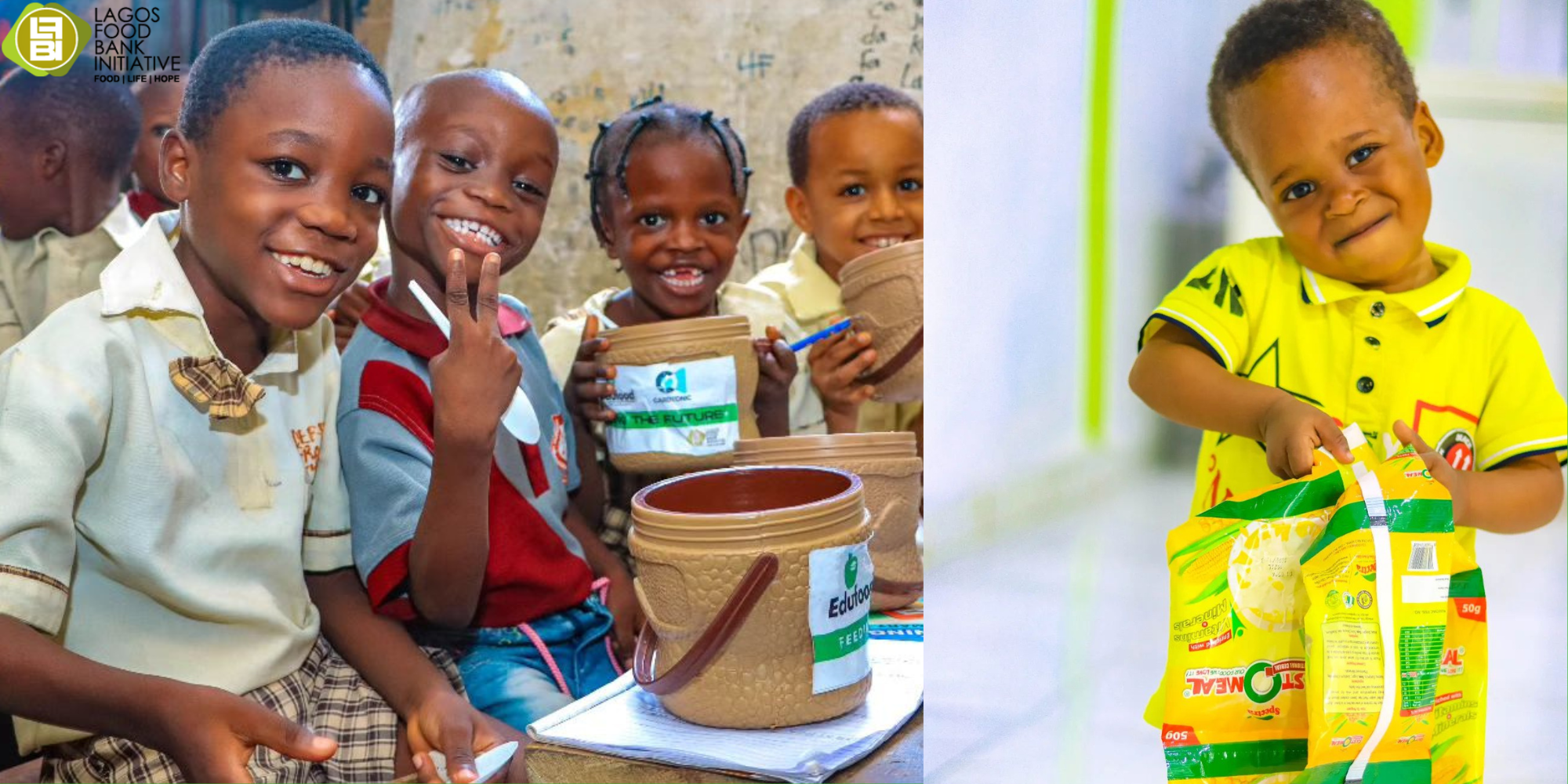In the bustling city of Lagos, where rapid urbanization often overshadows the needs of vulnerable populations, not-for-profit organizations like the Lagos Food Bank Initiative (LFBI) play a pivotal role in ensuring the health and future of children through innovative programs like EDUFOOD and NUMEPLAN. These initiatives not only provide immediate relief to food insecure and malnourished children, but also fosters long-term health and development among the future generations.
The EDUFOOD (Education Enhancement Intervention for Food Insecure Students) program addresses the critical intersection between nutrition and education by ensuring that children have access to nutritious meals during school hours. The EDUFOOD program distributes nutritious meals twice a week to young children in low-cost private primary schools. The program not only combats hunger but it also improves cognition and enhances concentration in the classroom. Proper nutrition has been shown to improve academic performance, school attendance rates, and overall well-being, laying a strong foundation for future success.
Meanwhile, NUMEPLAN (Nutritional Meal Plan Intervention for Vulnerable Mothers and Children) extends critical support to caregivers of young children who are suffering from malnutrition by providing nutritious meals and nutrition education. Similarly, the program takes on a proactive approach by providing nutrition intervention for nursing mothers whose children are at risk of severe malnutrition. By providing personalized counseling, this initiative empowers mothers and caregivers with the knowledge to make healthier, sustainable food choices and to prepare meals that meet the nutritional needs of their young children. The NUMEPLAN program contributes largely to the improvement of the overall health outcomes of children.
The impact of these programs extends beyond the immediate outcomes. By nourishing young children, Lagos Food Bank through its nutrition-focused initiatives ensures that children grow up with the physical and intellectual capabilities to thrive and contribute meaningfully to the society in an increasingly competitive world. Moreover, by fostering a sense of community and collective responsibility, these initiatives instill values of empathy and solidarity among future generations.
In conclusion, the commitment of Lagos Food Bank Initiative to nourishing the younger generation through EDUFOOD and NUMEPLAN exemplifies a holistic approach to addressing food insecurity and malnutrition. By investing in children’s health and development today, LFBI is paving the way for a brighter and healthier tomorrow for young children in Lagos.
Article written by Aliyyah Abudu



Mashable Video Downloader
August 28, 2024Wow wonderful blog layout How long have you been blogging for you make blogging look easy The overall look of your site is great as well as the content